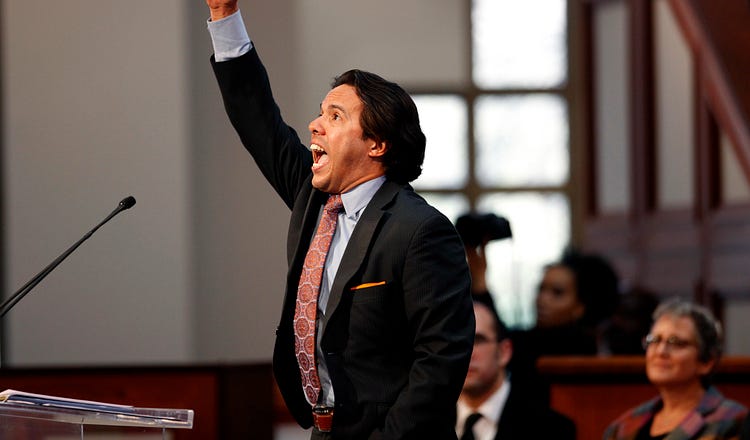Latinos Are Flocking to Evangelical Christianity

Samuel Rodriguez, then president of the National Hispanic Christian Leadership Conference, in 2013. (AP Photo/David Goldman)
From California to Florida, Latinos are turning their backs on Catholicism and embracing a new faith that’s changing the face of America.
97
In recent years, Latino voters have confounded expectations. Long taken for granted as a solidly Democratic voting bloc, they are now shifting rightward, with one recent poll showing Donald Trump leading Joe Biden among Latino voters. But voting preferences are just one area where this cohort is misunderstood.
Another is religion. Latinos, who make up 2…
Continue Reading The Free Press
To support our journalism, and unlock all of our investigative stories and provocative commentary about the world as it actually is, subscribe below.
$8.33/month
Billed as $100 yearly
$10/month
Billed as $10 monthly
Already have an account?
Sign In

